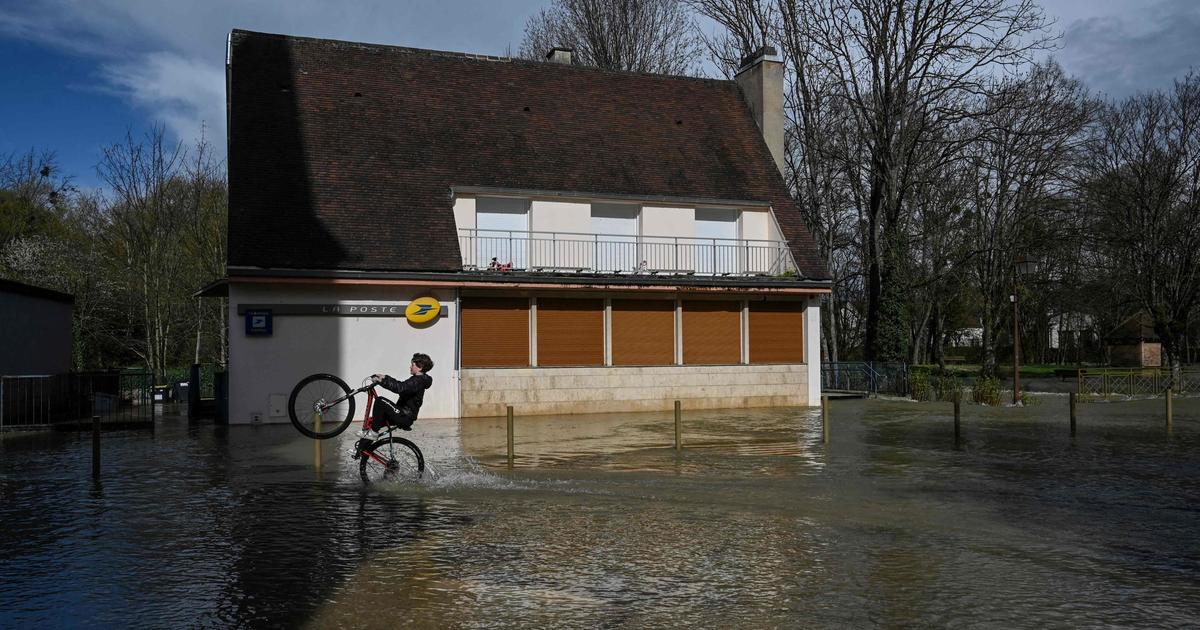Munich Re is pressing for the rapid expansion of protective measures against natural disasters.
The chief climatologist of the reinsurance company, Ernst Rauch, made this clear.
Munich - Munich Re is preparing for further increasing losses from natural disasters and climate change.
The expected increase in weather disasters also means "that there is a tendency for more damage to occur, if only because the values of the goods exposed" such as houses or cars increase over time, chief climatologist Ernst Rauch told
Merkur.de
on Friday
.
Rauch is Munich Re's Chief Climate and Geo Scientist and is considered one of the world's leading experts on natural hazards.
Mr Rauch, conflagrations in California, the terrible floods in North Rhine-Westphalia and Rhineland-Palatinate: In the meantime, hardly a week goes by without disaster reports. Do we have to get used to such horror news in the future?
The number of events registered by us and their amount of damage has actually increased, but this is presumably partly due to better recording than decades ago.
However, scientific studies clearly indicate that climate change will result in more extreme weather conditions and thus more weather-related natural disasters.
Examples of extreme weather conditions in which science already assumes a noticeable impact of climate change are heat waves and droughts in many regions, but also severe thunderstorms and heavy rain events in Europe.
What damage do you expect from the current flood disaster in North Rhine-Westphalia and Rhineland-Palatinate?
The most expensive storm damage year to date in Germany - without the large river flood in 2002 - was 2013 with insured damage of around four billion euros, from thunderstorms and heavy precipitation alone. According to a study by the Association of the German Insurance Industry, this amount of damage would be around 9 billion euros today, if one takes into account further weather-related damage this year and extrapolates it to the current insurance portfolio. It is still too early to estimate the damage for the current event. However, one very relevant event is to be expected.
Last year the total loss from natural disasters was $ 210 billion. 82 billion of these were insured. What amount of damage do you expect for the current year and how do you see the medium-term trend: Will the amounts of damage continue to rise worldwide?
The number of claims for a year cannot be forecast and the year 2021 is only half over. Nobody can know which path a cyclone will take, whether over the open Atlantic or densely populated area. The expected increase or intensity of weather disasters also means that there is a tendency for more damage to occur, if only because the values of the exposed goods such as houses, cars, etc. increase over time. At the same time, we all have some control over ourselves to adapt to this development and to reduce our vulnerability where possible, for example by no longer building in certain exposed areas or by building better dams against floods. Successes have already been achieved here in individual cases.
In the fight against climate change, the EU and Germany rely heavily on CO2 certificates. A certificate currently costs around 65 euros per ton of CO2. Many observers argue for a further increase. They also?
Basically, a CO2 price is a suitable instrument for reducing emissions and triggering savings at the most efficient point.
The design of price-determining instruments such as emissions trading systems or a CO2 tax are a political decision.
From a climate perspective, it is important that this actually has a steering - i.e. emission-reducing - effect.
The long-term reliability of the pricing mechanism also plays a role here.
In the public perception, the topic of climate change has recently lost attention due to the corona pandemic. The discussion should now pick up speed again. In your opinion, what would be the most important measures that the new federal government would have to take after the election to help the climate?
In terms of public perception, I agree with you. However, even in the peak of the pandemic, many companies worked intensively on strategies for aligning their business models with the goals of the Paris Climate Agreement. The task now is to implement the various strands of activity together with the political ambitions as quickly as possible. The sooner we reduce emissions globally, the less expensive it will be on balance and the less painful it will be in the future. In addition to resolute measures to reduce emissions in all sectors of the economy and the promotion of low-emission technologies, it is also essential to adapt, that is, to take preventive measures against natural disasters. Because we have to continue to expect these in the future.












/cloudfront-eu-central-1.images.arcpublishing.com/prisa/KMEYMJKESBAZBE4MRBAM4TGHIQ.jpg)


